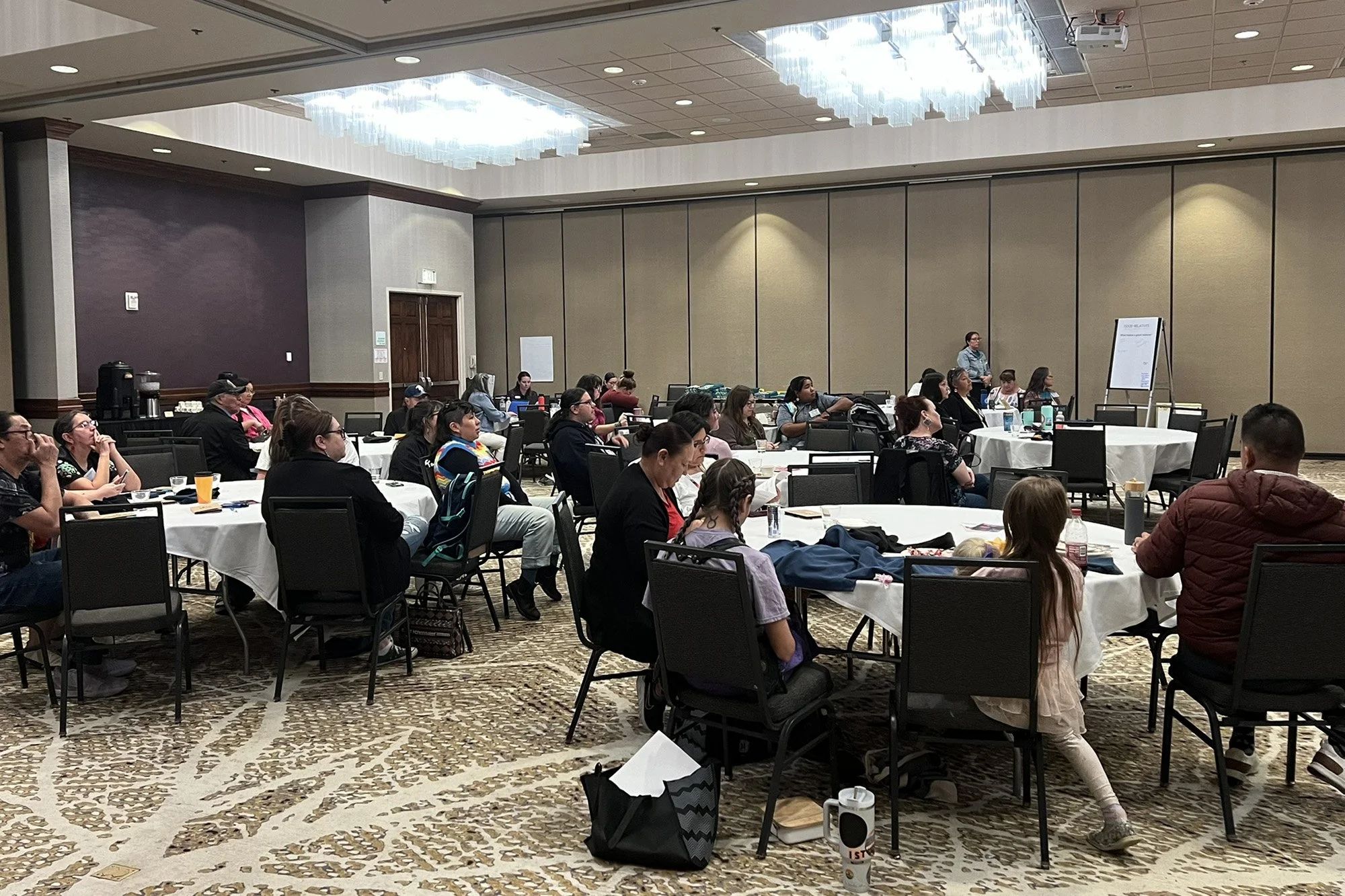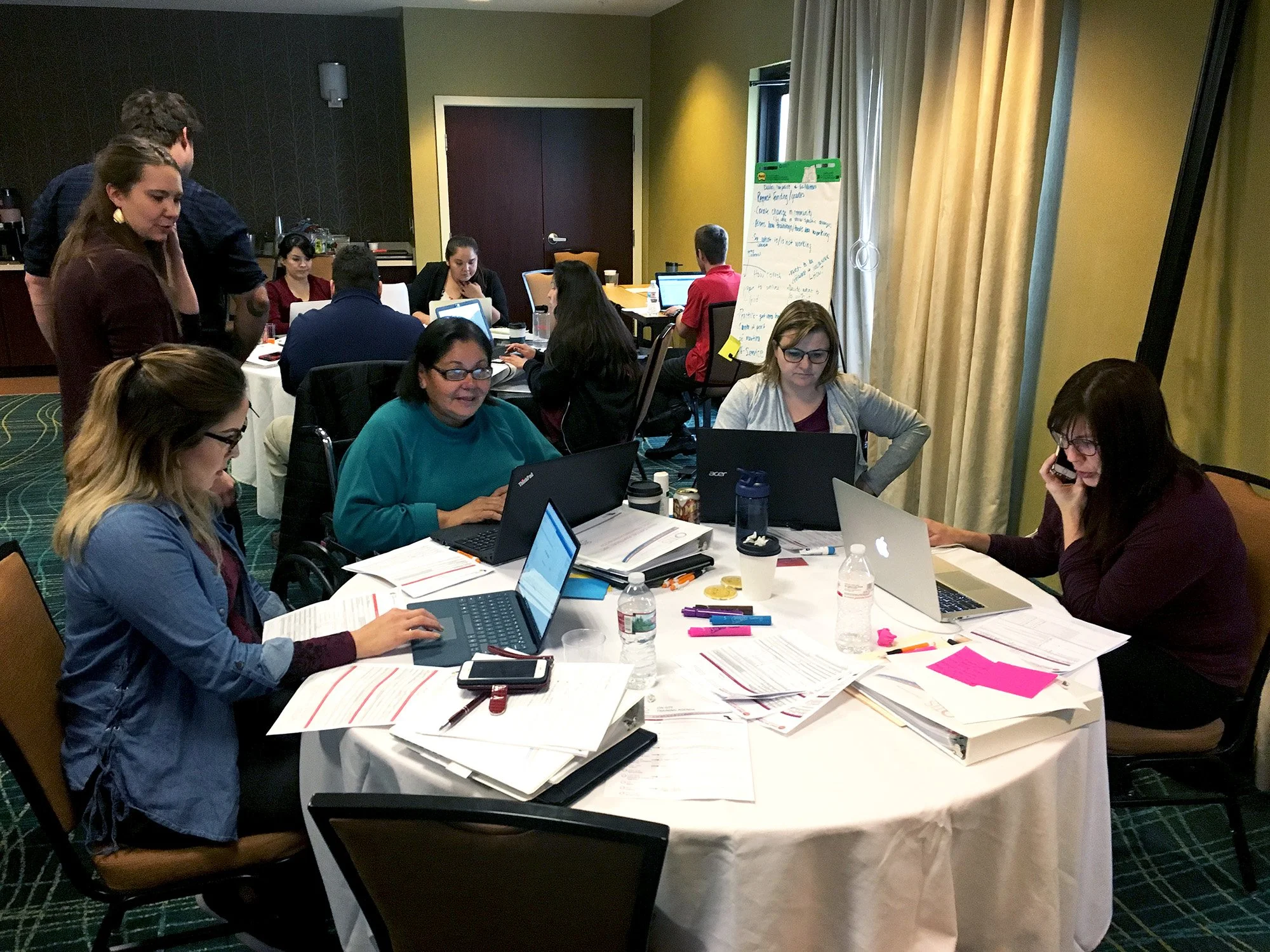Good Relatives Collaborative strengthens communities with culturally responsive grantmaking
2023 Good Relatives Collaborative Grantees gather for the annual convening in Rapid City, South Dakota, in October 2024.
According to Native Americans in Philanthropy, Native Americans make up 2.9% of the population but receive only 0.4% of total philanthropic dollars — and even less is directed to Native American groups by Native American decision-makers at philanthropic organizations. Native-led funders, like the Good Relatives Collaborative, are reshaping traditional funding models through a Native lens, offering unrestricted, trust-based funding to Native organizations. With this funding, grant recipients can address the needs of their communities in ways that are culturally authentic, resilient, and far-reaching.
The Collaborative was formed in 2022, bringing together three partner organizations, which now include — Four Bands Community Fund, Native American Community Development Institute (NACDI), and Sacred Pipe Resource Center — to support Native-led organizations and communities across Minnesota, North Dakota, and South Dakota. They distribute $1.2 million annually through two culturally responsive grant programs: the Native Nations Bush Prize and the Good Relatives Collaborative Grant.
Listening and learning together
In 2023, the Collaborative asked us to help evaluate what they had learned from their first years of grantmaking. As part of this effort, we also assisted in migrating from a grant portal to a Salesforce database, creating a system to collect applications and analyze the resulting data. My role was to design a database that would make it easy for applicants to submit information and for the review panel to access it. The new database would streamline the entire process while giving the Collaborative the ability to customize their data collection.
Last fall, grantees gathered in Rapid City, South Dakota, for an annual grantee convening designed as an alternative to traditional grant reports. Rather than requiring time-consuming reports, the Collaborative created a space for grantees to share experiences, challenges, and successes with one another. This approach reflected their values of community leadership, healing, cultural revitalization, and capacity building. It also gave grantees the chance to learn from each other and offer feedback that would shape future grantmaking.
Convening participants listen to presentations.
Good Relatives Collaborative member, Cheryl Kary from Sacred Pipe, speaks to convening participants.
Being part of this convening was a highlight of the project for me. From the start, the Good Relatives Collaborative made me feel like part of the family. Participating in the convening was deeply meaningful, especially hearing directly from the organizations whose work the grants support. My favorite moment was taking notes for the rez-cafe brainstorm sessions, where grantees rotated through four questions. I facilitated the discussion on “How could future funding better support partnership and collaborative efforts within your community?” Conversations ranged from shared transportation and retreats to leadership and professional development opportunities. Some grantees even proposed an incubator specifically for small, Native-led nonprofits. Some discussed support for self-care among staff and volunteers, including mental health resources and healing practices. Others identified the commonalities between the communities and believed more could benefit from the organizations gathered in the room.
Good Relatives Collaborative member, Alex Buffalohead from NACDI, facilitates a breakout group with convening participants.
Collecting data to show the impact of these grants initially presented a challenge. But by combining feedback from the convening, grant application data, and highlight videos of grantee work, we were able to capture successes and provide recommendations for the Collaborative and other funders interested in this approach.
Our key recommendations included:
Foster collaboration and reciprocity. Encourage grantees to engage in peer-to-peer learning and shared leadership initiatives through networking events, community advisory boards, and regional convenings. By defining shared values and practices of reciprocity within funding agreements, the Collaborative can strengthen relationships both internally among grantees and externally with other philanthropic entities.
Expand capacity-building support. Formalize capacity-building efforts through the development of a structured curriculum, online resources, and partners for grant coaching and technical assistance. Providing consistent, transparent resources that address operational needs such as governance, financial management, and strategic planning will empower grantees to build sustainable foundations.
By listening closely to grantees, the Collaborative is better able to understand what Native-led organizations need to thrive: flexible funding, sustained capacity building support, and an application process that respects Indigenous storytelling and tradition.
As a nonprofit systems enthusiast, I’m grateful for what I’ve learned from all three Collaborative members’ programs and models. Their weekly meetings demonstrate a dynamic, co-creative leadership style, always focused on improving their culturally responsive grantmaking and addressing the diverse and dynamic needs of Native grassroots organizations.
Demonstrating impact through data
By creating a system to collect and organize data, Sweet Grass helped the Collaborative highlight both the strengths and opportunities for philanthropy in Indigenous communities. This approach allows the Collaborative to show where resources are most needed and to define the “need” on their own terms, putting data sovereignty at the center of their work. While large philanthropic organizations often attempt such studies, the Good Relatives Collaborative has done it themselves, grounded in their own leadership and community knowledge.
Share











